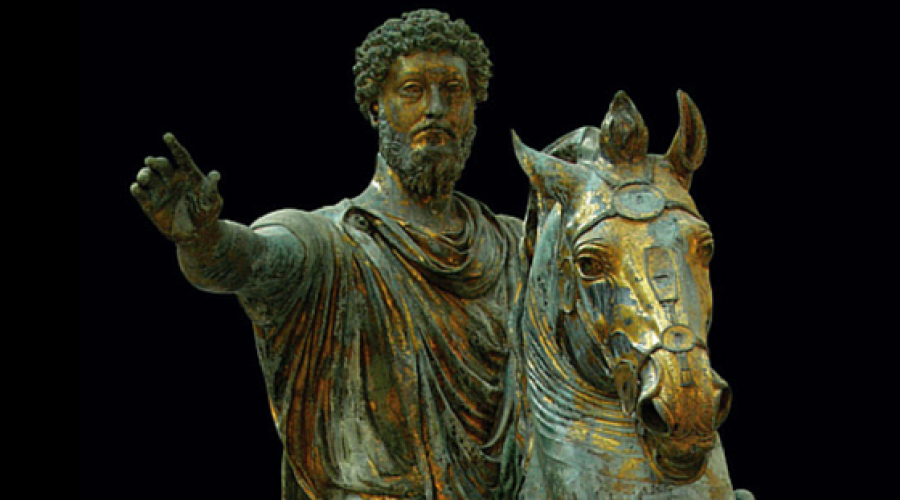
How to Read Marcus Aurelius's Books on Leadership
How to Read Marcus Aurelius's Works on Leadership
Estimated Reading Time: 10-12 minutes
Introduction
Marcus Aurelius, the Roman Emperor from 161 to 180 AD, is often celebrated as one of the most prominent Stoic philosophers. His work, Meditations, is not merely a personal diary but a profound exploration of leadership, ethics, and the human condition. Written in the midst of personal and political turmoil, Aurelius's reflections provide a unique perspective on the responsibilities and challenges of leadership. His Stoic principles emphasize rationality, virtue, and resilience, offering timeless wisdom that remains relevant for leaders today.
Understanding Aurelius's insights into leadership is crucial, especially in a world that often prioritizes charisma and authority over ethical governance. His reflections serve as a guide for anyone in a position of influence, encouraging leaders to cultivate inner strength and moral integrity. The historical context of his reign, marked by wars, plagues, and philosophical inquiry, further enriches our understanding of his thoughts on leadership.
Why Marcus Aurelius's Perspective Matters
Marcus Aurelius's approach to leadership is distinctive for several reasons. Firstly, his philosophy is rooted in Stoicism, which teaches the importance of self-control, rationality, and acceptance of fate. Unlike many contemporary leaders who may rely on populism or force, Aurelius advocates for a leadership style grounded in virtue and service to others.
His insights are not only applicable to political leaders but resonate with anyone in a position of authority—be it in business, education, or community service. Aurelius's emphasis on empathy, humility, and the greater good sets him apart from other philosophical thinkers, such as Machiavelli, who often focused on power dynamics and manipulation.
The lasting impact of Aurelius's ideas can be seen in modern leadership theories that prioritize emotional intelligence and ethical decision-making. His reflections encourage leaders to look inward, fostering a sense of responsibility that transcends mere authority.
Overview of Recommended Books
Meditations
Meditations is divided into twelve books, each containing a series of reflections and aphorisms that Aurelius penned for his own guidance. The work is not structured in a traditional narrative form but rather as a collection of thoughts that explore various themes related to leadership, virtue, and the human experience.
Main Themes and Arguments
-
Self-Discipline: Aurelius emphasizes the importance of self-control as a cornerstone of effective leadership. He frequently reminds himself to remain focused on his duties and to resist distractions.
-
Empathy and Service: A recurring theme is the idea that leaders should serve their people. Aurelius believes that understanding and compassion are essential for any leader who wishes to inspire loyalty and trust.
-
Acceptance of Fate: Aurelius teaches that leaders must accept the things they cannot control. This Stoic acceptance helps leaders maintain composure in the face of adversity.
-
The Interconnectedness of Humanity: He often reflects on the idea that all humans are part of a larger whole, which fosters a sense of duty toward others.
Historical Context and Significance
Written during a time of great strife in the Roman Empire, Meditations reflects Aurelius's struggles with the responsibilities of leadership amidst wars and plagues. His ability to maintain philosophical clarity during such tumultuous times makes his insights particularly poignant.
Key Insights and Takeaways
- Practice Mindfulness: Aurelius encourages leaders to remain present and mindful in their actions, fostering better decision-making.
- Embrace Challenges: He posits that challenges are opportunities for growth, urging leaders to view obstacles as a natural part of their journey.
- Cultivate Virtue: Leadership, according to Aurelius, is about embodying virtues such as justice, courage, and wisdom.
Why Read This Book:
Meditations is essential reading for anyone interested in understanding the moral dimensions of leadership. Its unique contribution lies in its blend of personal reflection and universal principles, making it relevant for contemporary leaders across various fields. Those seeking personal growth, ethical guidance, or insights into effective leadership will find Aurelius's work invaluable.
Key Themes and Sections
In Meditations, Aurelius’s exploration of leadership unfolds through various themes and sections that build upon each other:
- The Role of a Leader: Early sections emphasize the responsibilities of a leader to act with integrity and purpose.
- The Nature of Power: Aurelius reflects on the transient nature of power and the importance of using it wisely and justly.
- Dealing with Adversity: He discusses how leaders should approach challenges, advocating for resilience and adaptability.
- The Importance of Community: Later sections focus on the interconnectedness of humanity, urging leaders to consider the welfare of their communities in their decisions.
This progression of ideas illustrates how Aurelius’s thoughts on leadership are not static but evolve as he contemplates the complexities of human existence.
Who Would Benefit from Reading These Books
Meditations appeals to a wide range of readers:
- Students and Academics: Those studying philosophy, history, or political science will find Aurelius’s insights relevant to their fields.
- General Readers Interested in Leadership: Anyone curious about ethical leadership will benefit from his reflections.
- Professionals Seeking Practical Wisdom: Business leaders and managers can apply Aurelius’s principles to foster a more ethical workplace.
- Anyone Looking for Personal Growth: Individuals interested in self-improvement will find actionable insights that encourage introspection and resilience.
Recommended Reading Order
To maximize the impact of Meditations, consider the following reading strategy:
- Begin with Book 1: This section introduces Aurelius’s foundational thoughts on gratitude and the importance of personal responsibility.
- Focus on Book 2 and 3: These books delve into the nature of challenges and the leader’s response to adversity, essential for understanding resilience.
- Advanced Study with Book 6: This book emphasizes the interconnectedness of humanity, encouraging deeper reflection on the leader’s role in society.
As you read, take notes on passages that resonate with you and consider how you can apply Aurelius's insights to your own leadership journey.
Conclusion
Marcus Aurelius's contributions to the understanding of leadership are profound and enduring. His reflections in Meditations offer a roadmap for ethical leadership that emphasizes virtue, empathy, and resilience. By exploring these works, readers can gain valuable insights that apply not only to their professional lives but also to their personal development.
As you embark on this journey through Aurelius’s thoughts, remember that the essence of leadership lies in serving others and cultivating a strong moral compass. Embrace the wisdom of the Stoics, and let it guide you in your quest for effective and ethical leadership.
Featured Books

Meditations
by Marcus Aurelius
Published: 180
A timeless Stoic classic, Meditations is the personal journal of Roman Emperor Marcus Aurelius, offering clear and practical reflections on discipline, resilience, and how to live with purpose. Written nearly 2,000 years ago, its insights on self-control, adversity, and inner peace remain deeply relevant today.